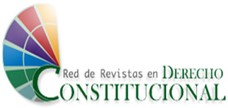CORRUPTION
AN ANALYSIS FROM THE INSTITUTIONAL ECONOMY AND HORIZONTAL ACCOUNTABILITY IN SEARCH OF THE EFFECTIVENESS OF PUBLIC ADMINISTRATION CONTROL
Keywords:
Corruption, Institutions, AccountabilityAbstract
Corruption is one of the most important issues in contemporary society, and institutions should promote integrity actions. This paper promotes a re-reading of the literature on corruption with emphasis on the approach of the Institutional Economy, which gives relevance to the institutions in the organization of formal and informal procedures. The concept and theory of accountability are central to understanding the importance of institutional coordination in effectively combating corrupt practices. Horizontal accountability, on the other hand, is about the control relations that agents, organs and public authorities promote among themselves, which is fundamental for facing corruption. It is concluded by the intense relationship between theoretical assumptions of the Institutional Economy and the theory of accountability and by the need for greater coordination among agents, organs and public authorities and branches for the effectiveness of horizontal accountability mechanisms in the issue of corruption
References
ABRAMO, Claudio. Percepções pantanosas: a dificuldade de medir a corrupção. Novos Estudos Ceprab, n.3, pp. 33-37, 2005.
ACKERMAN, S.R & PALIFKA, B. J. Corruption and Government: causes, consequences and reform. Cambridge University Press, 2016.
SUSAN ROSE-ACKERMAN. Corruption and Government: Causes, Consequences and Reform. Cambridge University Press, 1999.
ARANHA, Ana Luiza; FILGUEIRAS, Fernando. Instituições de Accountability no Brasil: Mudança Institucional, Incrementalismo e Ecologia Processual. 2016.
BATISTA, Mariana; MARQUES, Radamés. Instituições Políticas e Corrupção: uma Análise da Literatura Comparada. Revista Política Hoje. Vol. 21, n. 1, pp. 7-42, 2012.
CAMPOS, Anna Maria. Accountability: Quando Poderemos Traduzir para o Português? Revista de Administração Pública. Rio de Janeiro, fev-abr, p. 30-50, 1990
CONCEIÇÃO, Octavio Augusto Camargo. Os Antigos, os Novos e os Neoinstitucionalistas: Há Convergência Teórica no Pensamento Institucionalista? Análise econômica. Porto Alegre. Vol. 19, n. 36 (set. 2001), p. 25-45, 2001.
NORTH, DOUGLASS C. Instituições, Mudança Institucional e Desempenho Econômico. São Paulo: Três Estrelas, 2018.
FARRALES, Mark J., What is Corruption? A History of Corruption Studies and the Great Definitions Debate (june 2005). SSRN. Disponível em: https://ssrn.com/abstract=1739962 or http://dx.doi.org/10.2139/ssrn.1739962. Acesso em 30 jul. 2018.
FELIPE, E. Instituições e Mudanças institucionais: uma Visão a Partir dos Principais Conceitos Neo-Schumpeterianos. Revista Economia, Brasília, D. F., v. 9, n. 2, p. 245-263, maio/ago. 2008.
FERREIRA, Dimas E. Soares. Corrupção: Teoria, Percepção e Realidade. Em Debate: Periódico de Opinião Pública e Conjuntura Política, Belo Horizonte, v. 9, n. 1, p. 35-47, maio 2017.
FILGUEIRAS, F. In: Avritzer, L. et al. Corrupção: ensaios e críticas. Belo Horizonte: Editora UFMG, 2008a, pp. 353-361.
FILGUEIRAS, Fernando. Corrupção, democracia e legitimidade. Belo Horizonte: Editora UFMG, 2008b.
GOMES, José Vitor Lemes. A Corrupção em Perspectivas Teóricas. Teoria e Cultura, v. 5, n. 1 e 2, p. 21-33, 2010.
HUNTINGTON, Samuel P. A Ordem Política nas Sociedades em Mudança. São Paulo: Ed. USP. 1975.
LEFF, Nathaniel. Economic Development through Bureaucratic Corruption. American Behavioral Scientist, p. 8-14, 1964.
PINHO, Diva Benevides; VASCONCELLOS, Marco Antonio Sandoval de. Manual de Economia: Equipe de Professores da USP. 6. ed. São Paulo: Saraiva, 2011.
NYE, Joseph Nye. Corruption and Political Development: A Cost-Benefit Analysis. The American Political science Review. Vol.61, n.2, p.417-427, jun. 1967.
O 'DONNELL, Guillermo. Accountability Horizontal e Novas Poliarquias. Lua Nova, São Paulo, n. 44, p. 27-54, 1998.
PINDYCK, R.S; RUBINFELD, D. L Microeconomia. 7a ed. São Paulo: Prentice Hall, 2010.
PINHO, José Antonio Gomes; SACRAMENTO, Ana Rita Silva. Accountability: já podemos traduzi-la para o português? Revista de Administração Pública, v. 43, n. 6, p.1343-1368, 2009.
ROBL FILHO, Ilton Norberto. Conselho Nacional de Justiça Estado Democrático
SCHEDLER, Andreas. Conceptualizing accountability. In: DIAMOND, Larry; PLATTNER, Marc F.; SCHEDLER, Andreas (orgs). The Self-Restraining State: Power and Accountability in New Democracies. Colorado: Lynne Rienner Publishers, 1999, p. 13-28.
SHLEIFER, Andrei; VISHNY, Robert W. Corruption. The Quarterly Journal of Economics, v. 108, n. 3, p. 599-617, 1993.
SIMÕES, André. Instituições e Desenvolvimento Econômico: os Contrastes entre as Visões da Nova Economia Institucional e dos Neoinstitucionalistas. Ensaios FEE, v. 35, n. 1, pp. 33-54, 2014.
TREBILCOCK, Michael J.; PRADO, Mariana Mota. What makes poor countries poor? Institutional determinants of development. Cheltenham: Edward Elgar Publishing, 2011.
TRANSPARENCY INTERNATIONAL. Corruption Perceptions Index 2017. 2017a. Disponível em: <https://www.transparency.org/news/feature/corruption_perceptions_index_2017>. Acesso em 24 ago. 2018.
TRANSPARENCY INTERNATIONAL. Global Corruption Barometer 2017. 2017b. Disponível em <https://www.transparency.org/files/content/feature/Global_Corruption_Barometer _FAQs.pdf >. Acesso em 30 ago. 18








